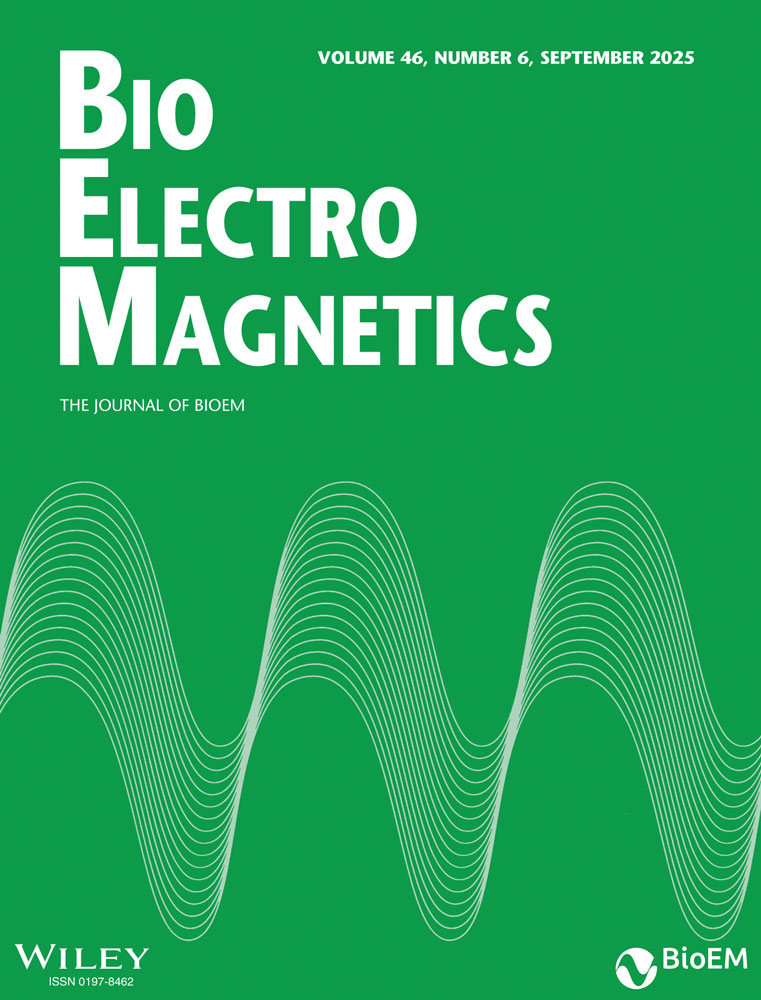Electric field exposure alters serum melatonin but not pineal melatonin synthesis in male rats
Abstract
Sprague-Dawley male rats, maintained in a 14:10 h light:dark cycl were exposed for 30 days (starting at 56 days of age) to a 65 kV/m, 60 Hz electric field or to a sham field for 20 h/day beginning at dark onset. Pineal N-acetyltransferase (NAT), hydroxy-indole-o-methyl transferase (HIOMT), and melatonin as well as serum melatonin were assayed. Preliminary data on unexposed animals indicated that samples obtained 4 h into the dark period would reveal either a phase delay or depression in circadian melatonin synthesis and secretion. Exposure to electric fields for 30 days did not alter the expected nighttime increase in pineal NAT, HIOMT, or melatonin. Serum melatonin levels were also increased at night, but the electric field-exposed animals had lower levels than the sham-exposed animals. Concurrent exposure to red light and the electric field or exposure to the electric field at a different time of the day-night period did not reduce melatonin synthesis. These data do not support the hypothesis that chronic electric field exposure reduces pineal melatonin synthesis in young adult male rats. However, serum melatonin levels were reduced by electric field exposure, suggesting the possibility that degradation or tissue uptake of melatonin is stimulated by exposure to electric fields. © 1994 Wiley-Liss, Inc.




